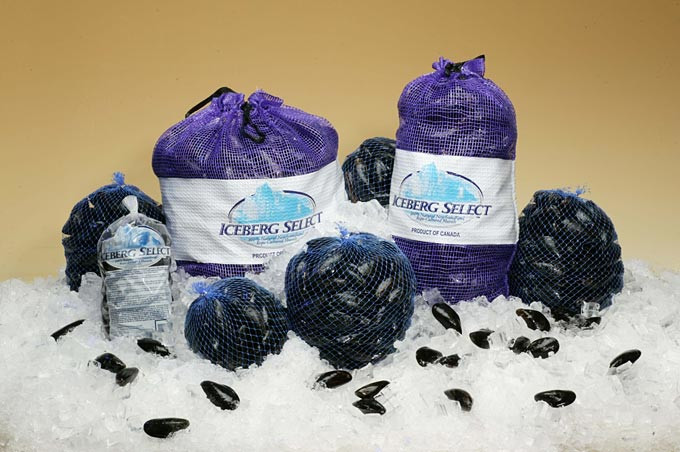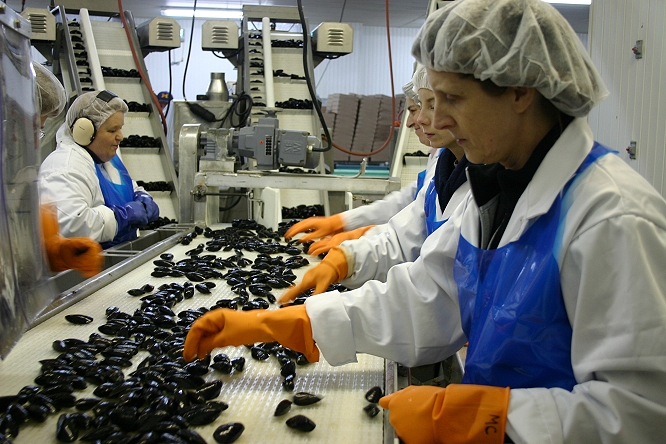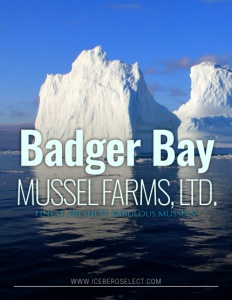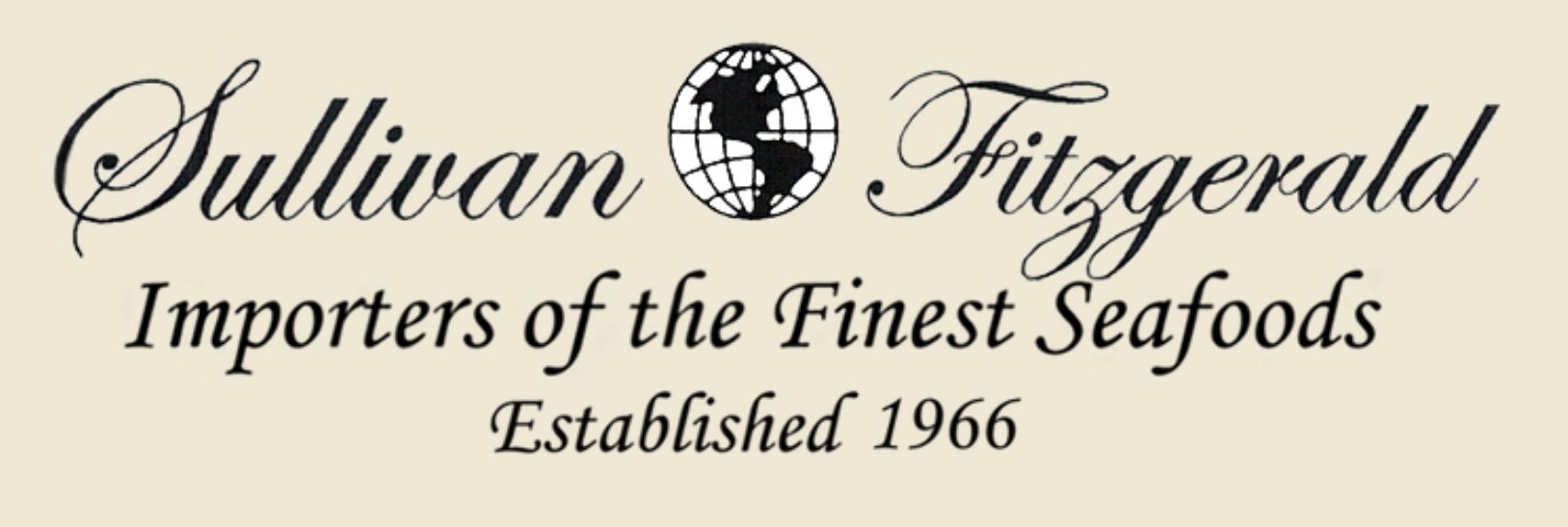Badger Bay Mussel Farms, Ltd.
Finest, freshest, fabulous mussels!
Business View Magazine interviews Juan Roberts, President of Badger Bay Mussel Farms, Ltd., for our focus on Sustainability in Canadian Fisheries.
Just listening to Juan Roberts, President of Badger Bay Mussel Farms, Ltd., one experiences much of the iconic flavor of Newfoundland through his charmingly candid way with words. The delicious mussels his company produces represent another incredible flavor, altogether – the finest freshest, most fabulous in North America. Needless to say, both Roberts and his company have a lot to offer. Badger Bay Mussel Farms Ltd. and its affiliated aquaculture operations have thousands of hectares of mussel growing areas, producing millions of pounds of delicious, certified organic product under the name “Iceberg Select” mussels.
Superb in quality, size, and taste, these world-class mussels are harvested using the most modern techniques and equipment in Atlantic Canada. State-of-the-art primary processing is handled by Allen’s Fisheries Ltd. (Benoit’s Cove, NL), where Iceberg Select mussels are hand-graded and inspected before shipping, as live in mesh, live in poly, or live in bulk for further processing.

Speaking to the origins of Badger Bay Mussel Farms, Roberts recalls, “We started back in 1988, so we just passed 30 years. We started out pretty small; made a lot of mistakes. Part of the reason we started aquaculture was, really, I didn’t want to move away from home; wanted to see if I could make a living here. The first thought was I was going to get into salmon but that never lasted very long, so I figured I’d get into something that was a little bit easier to grow, which would be mussels. The first year, we ended up with a lot of seed but we had a big storm and lost a lot of the mussel stock; only ended up with about eight or nine hundred. My first harvest in 1990/91 was about 25,000 pounds, which, by today’s standards, is not very much. We started off with three sites – about 50 or 60 hectares – and kept on expanding. We were growing mussels and selling them to another buyer for about 14 years and that didn’t seem to grow the company too much, because when we got the mussels grown, we couldn’t sell them, and we had a job getting paid.”
Sixteen years ago, in 2003, Roberts approached Craig Allen at Allen’s Fisheries on the west coast of Newfoundland and asked if Badger Bay could process the mussels at his plant, and then market and sell them from there. Allen agreed, and that was the beginning of a long and valuable business relationship that continues today. “The first production of mussels we processed under our own brand was 5,000 pounds a week,” says Roberts. “And now, it’s over 100,000 pounds per week. We started off with 50 hectares of water back in ’88 and then we applied for more. Five to seven years ago (time goes so fast), we bought three enterprises from other farmers, over three years. Then we bought another one out this spring. That business had more water and more sites, because each of those growers that sold out had multiple sites. So, we started out with three sites and now we have 23 sites and over 1,000 hectares of water.”
The Canadian aquaculture industry involves several government agencies, including the Coast Guard and Department of Fisheries, each with their own regulations, and much more red tape than previously encountered by producers. While the Coast Guard is, in Roberts’ words, “more sticky to work with,” the company can still apply for more water through expansions on existing sites. Two years ago, they expanded one of their sites from 90 hectares to 140 – in water adjacent to their own. So, they didn’t have to acquire a site from someone else. Roberts notes, “The 23 sites we have range from small ones of 10 to 20 hectares to about 200. Basically, there is land on either side and it’s like a cove. At one time we had lines coming off-shore about 50 to 100 feet, and every 75 feet there’d be a line going perpendicular to the shore, like a grid. But, in the last few years, the Coast Guard wants us to have it parallel with the shore, so people can get access in and out, easier. So, some of our sites are set up the old way, and some the new way.”
In the process of honing his farming techniques, Roberts travelled to New Zealand to learn new methods for increasing productivity. New Zealand is considered a world leader in producing environmentally sustainable mussels. It was there that Roberts learned “continuous socking” technology. Badger Bay Mussel Farms was the first to use this sustainable and efficient method in Newfoundland.
The mussel farming process is fascinating. As Roberts explains, “We have many seed sites that catch the seed from the wild. The wild mussels on the shore spawn from the middle to end of June, when the tide is right. In early July, we take trolls in a 60 micrometer net. We look under a microscope, and if 60 percent of the larvae are over 250 micrometers, we put our collectors in the water and leave them alone about a foot under water with small buoys attached to the lines.” A collector is a main line with six or eight foot drops of rope hanging down a foot apart from one side to the other (picture a clothesline). The closer to the surface, the more you get.

One year later, that seed you caught from the wild is about an inch long. Roberts adds, “We have aluminum barges with hydraulics and all the works – and we go out and use machinery to strip that seed. It goes up a conveyor onto the barge and into a container where we ‘decloak’ it so it’s loose. We have a sorter that sizes the grades between quarter, three-eights, and half inch, then we ‘sock’ those mussels to a different site. Basically, on the main line there are drops of rope, every 18 inches and 40 feet deep, in one continuous piece. It’s all computerized and automated. Mussels are wrapped on the outside of the rope (about 225 mussels per foot) and there is 100-percent virgin cotton on the outside of that.”
The advantages of this system are impressive. When you harvest, there is no monofilament to go in the landfill, nothing goes in the water, and everything is reusable and biodegradable. Using the continuous line technology is very efficient, easier on the crew, and environmental-friendly. Employing it helped Badger Bay obtain organic certification, and also makes deployment of the socks, and harvesting, quicker, and results in a much higher volume. The company currently operates three facilities in Newfoundland: Badger Bay Mussels Farms, Inc. (the marketing arm) employs 11 people; the sister company, Notre Dame Bay Mussel Farms, Inc. (10 people); and Mirachin Oyster Farms, Inc. (5 people); along with two biologists stationed at the Ocean Sciences Centre in St. John’s. Product is sold under two brands – Iceberg Select and Badger Bay Blues – to Newfoundland, Atlantic Canada, Quebec, Boston, New York, and Philadelphia.
Roberts admits, “We’ve been doing this a long time and we’ve had our struggles but you can’t stop. And you’ve got to diversify. My wife, Sherrie, and I started this business together, and I don’t give her enough credit. We had no hydraulics from 1988 to 1995 – just brute force labor. But we learned a lot. This is a tough racket. It’s not for the faint of heart. These days, with storms and high winds, we’re always losing seed. But our quality is still the same. And everywhere we go, we find people that has had our mussels that like the quality of them, the size, and they like the meat.”
Looking ahead, Roberts acknowledges, “The smaller people are fading away and there’s a lot more consolidation. It’s so competitive and expensive now, and the regulations are so drastic. When I started at 22, I was the youngest in this land at mussels. That thirty years has gone fast. Overall, I would like to see that we can do our 7 to 10 million pounds of mussels, it should be pretty easy to achieve. And I’d like to do two or three million oysters, that’s what I’d like to get on the go. Our competition isn’t really next door. It’s around the world. We’re affiliated with other companies who are also marketing mussels. At the end of the day, the market has grown and people are eating more shellfish, more seafood. It’s a fairly cheap commodity. And mussels are good for you to eat every day.
“I think we should be pushing the healthy part of it more because you can’t find a healthy source of protein as low cost as mussels. Badger Bay Mussels Farms produces the best, top quality, organic mussels in Canada. Of course, running a small business in Newfoundland isn’t easy, but you can’t quit. When times get tough, you’ve just got to get tougher.”
AT A GLANCE
Who: Badger Bay Mussel Farms, Ltd.
What: Producer of world-class mussels
Where: Head office in Triton, Newfoundland
Website: www.icebergselect.com
PREFERRED VENDORS
Aqua Marine Services – jamesgosse1964@gmail.com



